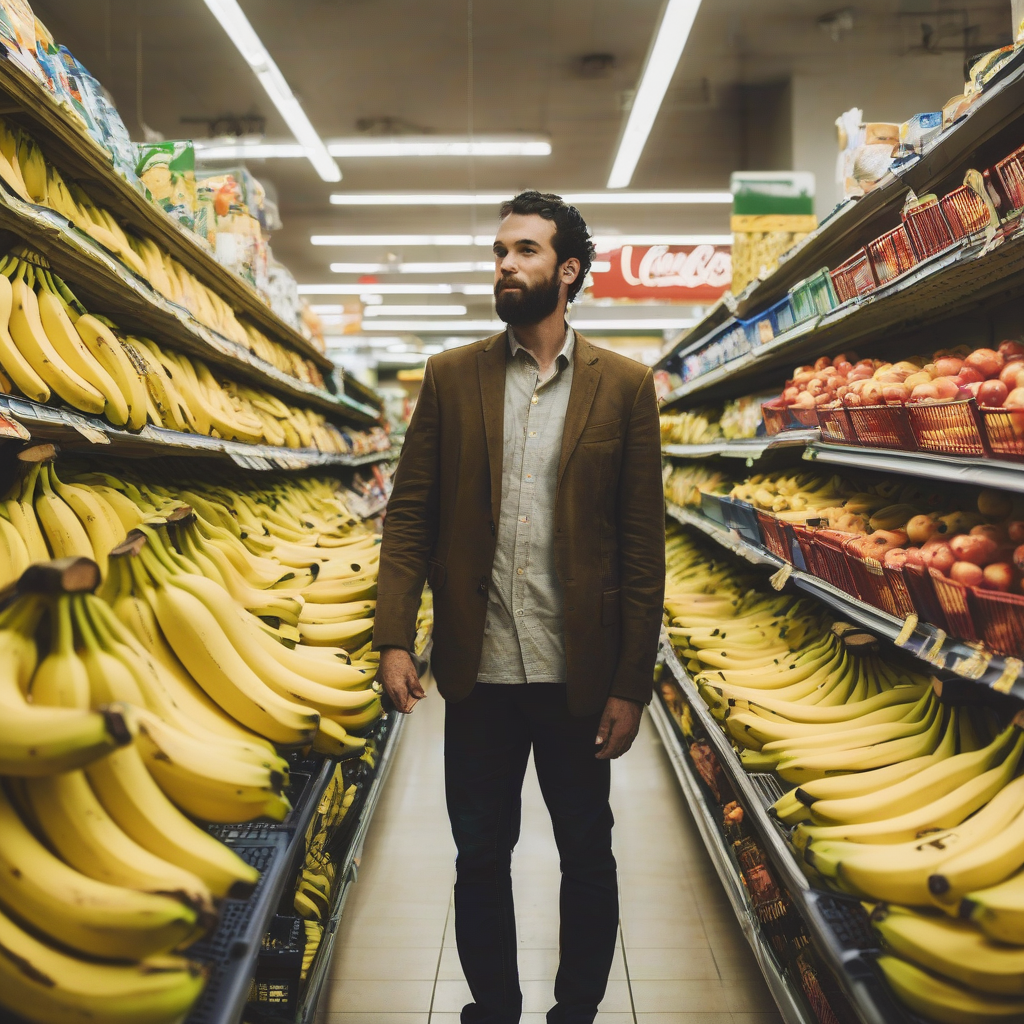The Banana Stand: A Case of Too Much Fruit?

In a case that's sure to raise eyebrows, a man named Harold "Harry" Henderson has filed a lawsuit against his local grocery store, "The Fresh Market," alleging they sold him an excessive amount of bananas. Henderson claims the store's actions caused him significant emotional distress and financial burden, highlighting a burgeoning trend of consumer litigation in the era of "overshopping."
The lawsuit, filed in the Superior Court of Cook County, Illinois, details a harrowing tale of banana-induced anxiety. Henderson, a self-proclaimed "banana aficionado," states that he regularly purchases bananas from "The Fresh Market," often opting for a standard bundle of a dozen. However, on the fateful day of May 15th, 2023, Henderson claims he was inexplicably sold 24 bananas, twice the amount he had intended to buy.
"I was shocked," Henderson recounts in his lawsuit, "I clearly remember asking for a dozen bananas. The cashier, a young man with a rather bewildered expression, insisted I had purchased two dozen. I tried to explain my confusion, but he just shrugged and handed me the enormous bag of fruit."
Henderson states that upon arriving home, he was overwhelmed by the sheer volume of bananas. The fruit, he alleges, took up precious space in his already cramped refrigerator, forcing him to discard other perishable goods. Moreover, he claims he was unable to consume the entire purchase before the bananas began to ripen, resulting in a "banana-laden" home with a pervasive scent of overripe fruit.
"The stench was unbearable," Henderson laments, "My wife threatened to leave if I didn't find a solution. I felt trapped, surrounded by this immense fruit, my own actions seemingly leading to a banana-induced apocalypse."
Henderson argues that the grocery store's actions constitute "negligent misrepresentation," claiming the store misrepresented the amount of fruit he had purchased. He further asserts that "The Fresh Market" failed to provide him with adequate warning about the potential consequences of purchasing an excessive quantity of bananas, leading to his emotional distress and financial burden.
"I had to throw away perfectly good groceries because of the banana onslaught," Henderson argues, "My refrigerator is still recovering from the trauma. I'm seeking damages for the emotional and financial suffering I've endured."
The lawsuit has quickly gained attention, sparking debate about consumer rights and the potential pitfalls of overconsumption. Some legal experts argue that Henderson's case is tenuous, claiming he could have easily returned the surplus bananas to the store. Others, however, see the case as a bellwether for a growing trend of consumer litigation against businesses perceived as contributing to consumer overspending and "overshopping."
"This case touches on a larger issue of consumer responsibility," says Professor Emily Carter, a legal scholar specializing in consumer protection law, "It raises questions about the role of businesses in shaping consumer behavior. Is it the responsibility of the store to prevent customers from purchasing excessive quantities of products, or is it the customer's responsibility to control their spending?"
The lawsuit also shines a light on the psychological impact of excessive consumption. While the concept of "overshopping" has been widely explored in the realm of consumer psychology, the legal ramifications of "overshopping" remain largely uncharted territory.
"The emotional distress Henderson claims to have suffered is a real phenomenon," says Dr. Benjamin Hill, a psychologist specializing in consumer behavior, "The feeling of being overwhelmed by a purchase, particularly a large one, can lead to feelings of anxiety, guilt, and regret. This is especially true when the purchased item is perishable, like fruit, as it creates a sense of urgency and pressure to consume."
The case of "The Fresh Market" vs. Harold Henderson could be a landmark case in the field of consumer law, challenging the traditional notions of individual responsibility and the potential liabilities of businesses in the face of overconsumption. As the case progresses, it will be interesting to see how the courts handle this unique issue and whether the concept of "overshopping" becomes a recognizable legal principle.
The outcome of this case could have significant implications for both consumers and businesses alike, potentially shaping the landscape of consumer protection law and prompting a reassessment of the role of businesses in shaping consumer behavior.